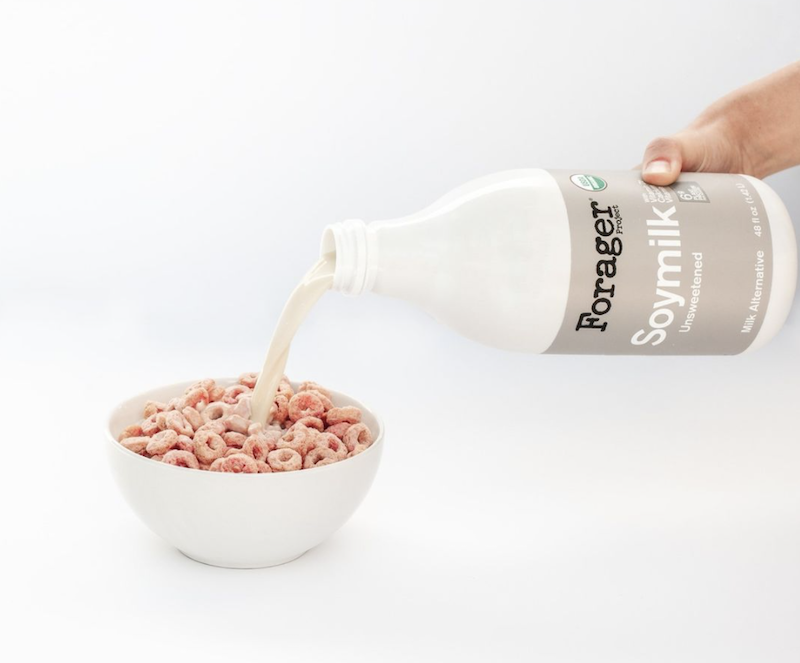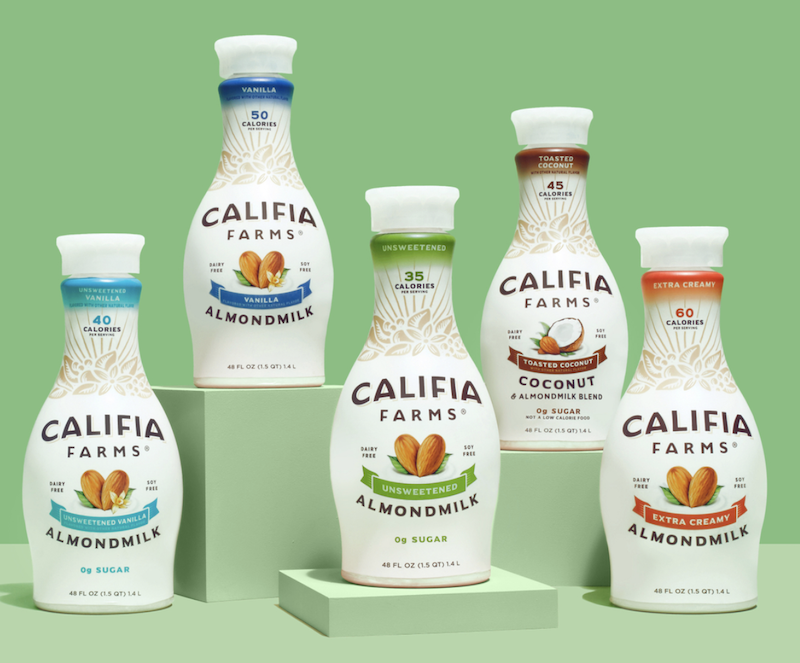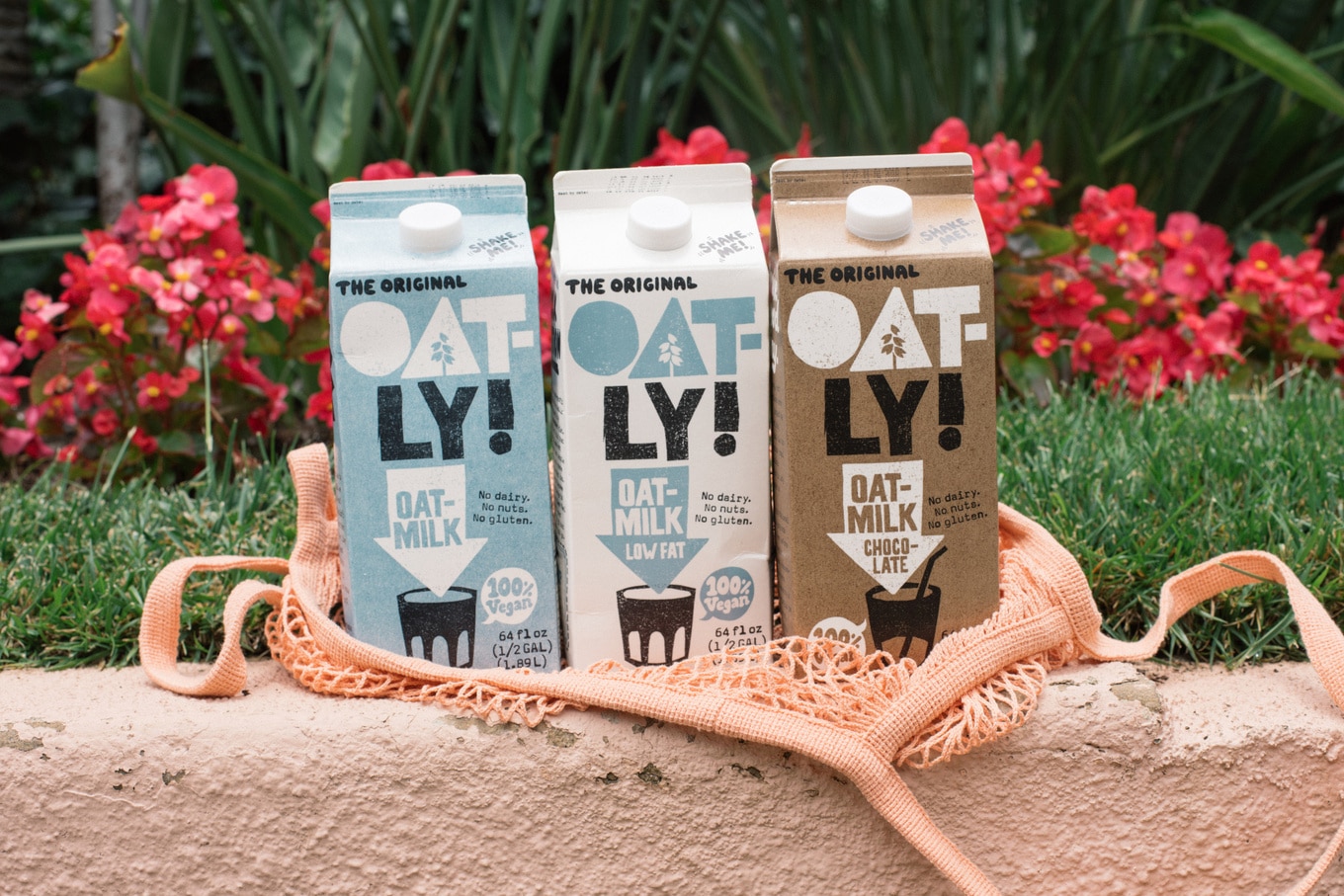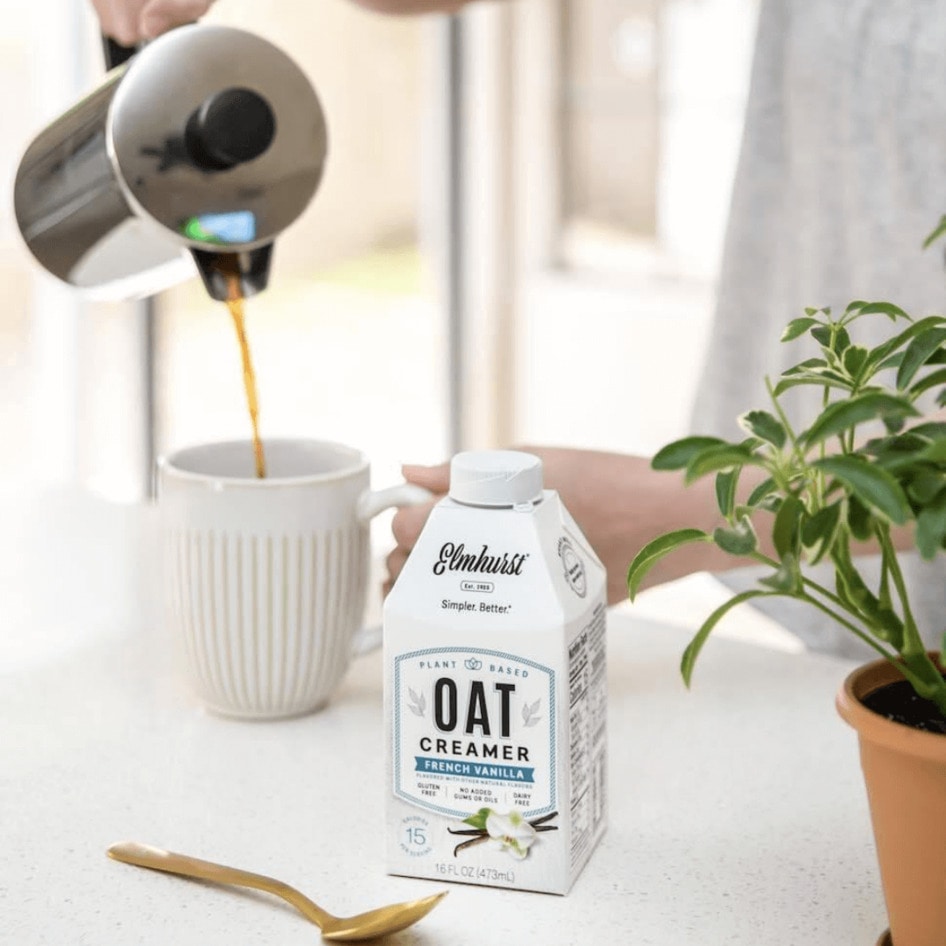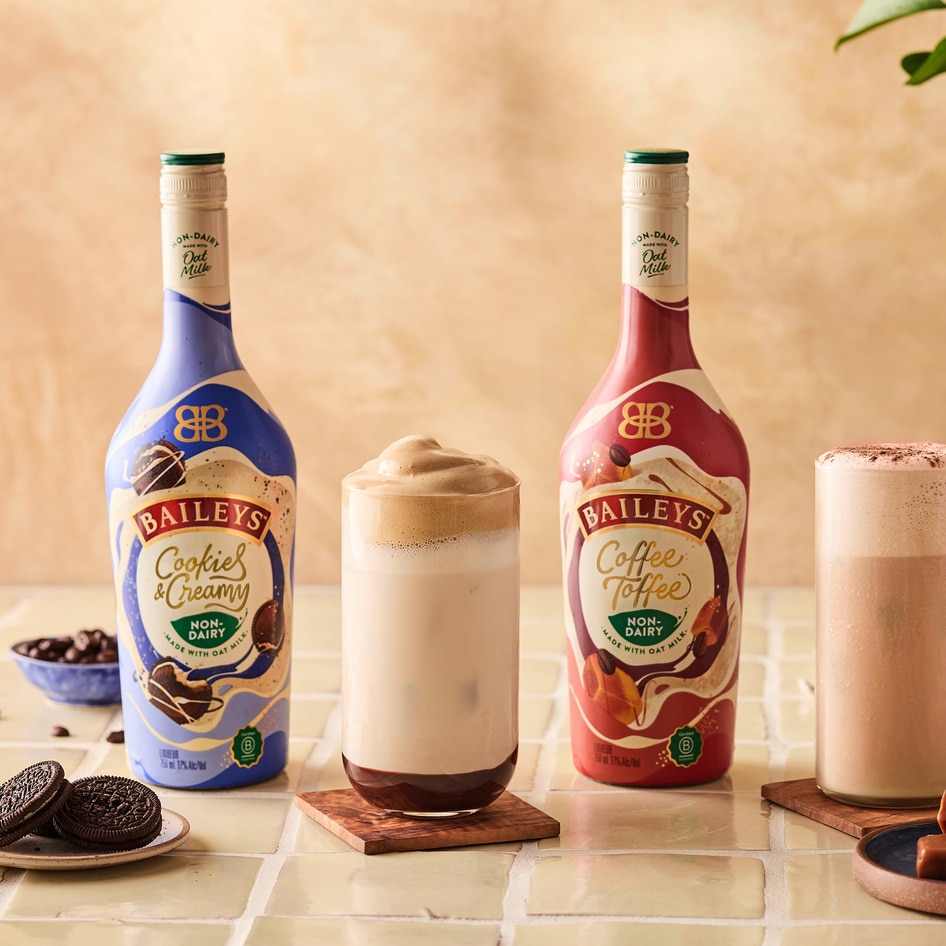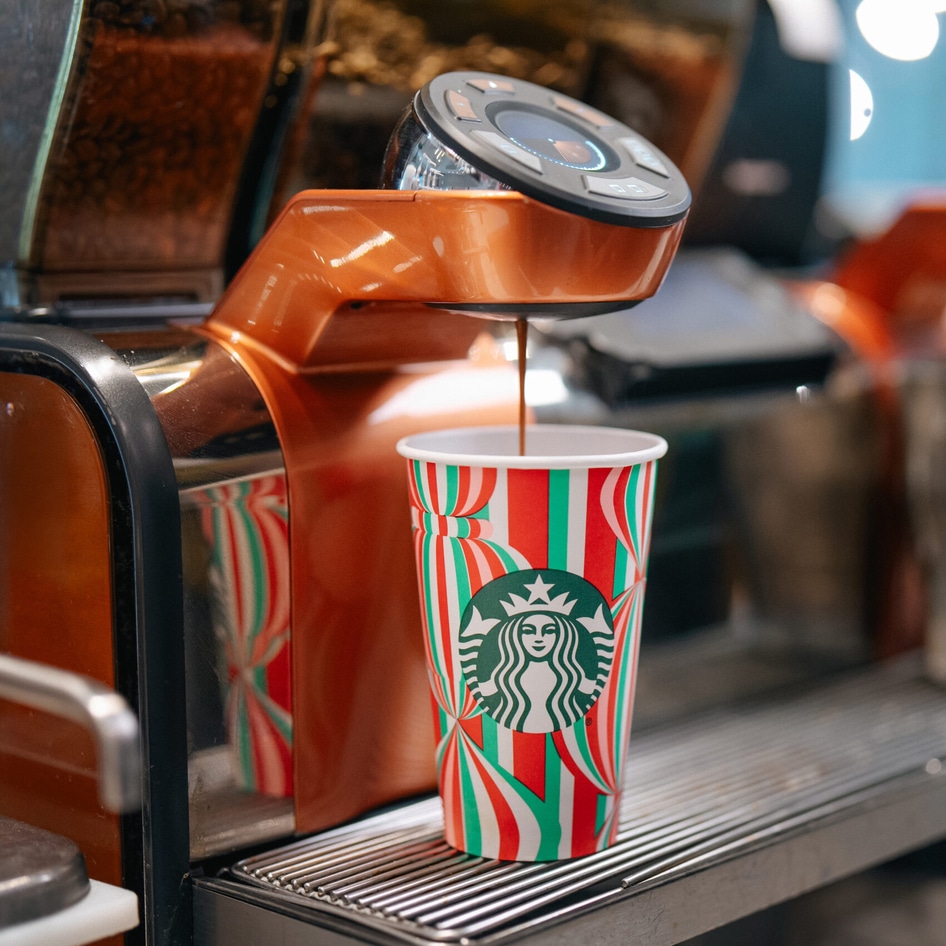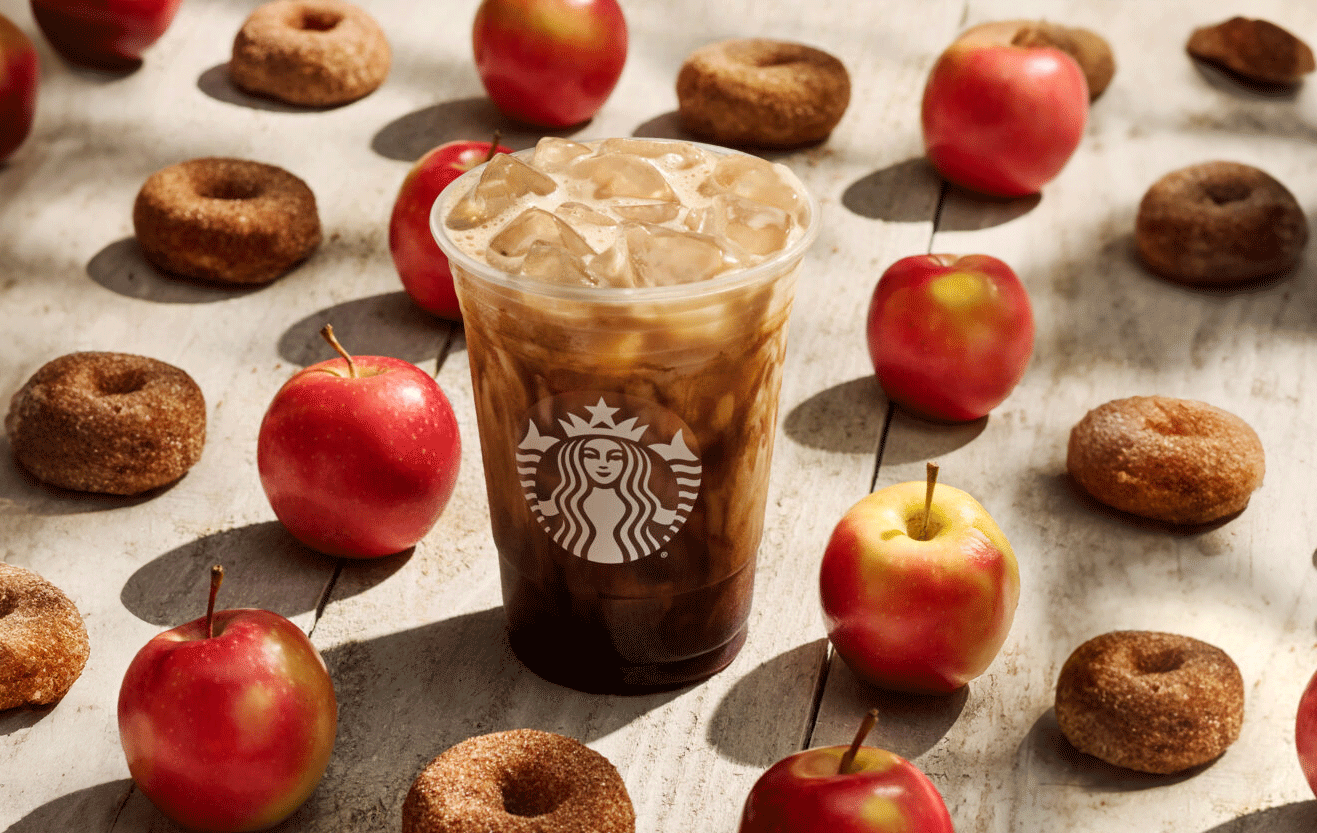Due to the vastness of the vegan milk market, it’s becoming ever more common to find an array of choices at coffee shops. No longer confined to just soy or almond, chains and independently owned cafés alike typically carry a range of non-dairy options from a number of brands, giving the once-dominant Califia Farms and Oatly a bit of competition.
From classic soy to emerging pistachio, here is all you need to know about non-dairy milk options for your next coffee run. But first, here’s a little more context on the burgeoning plant-based milk market.
Vegan milk rises in popularity
The non-dairy milk market in the US is currently the most robust category of plant-based foods in terms of sales. Valued at $2.5 billion in 2020, plant-based milk accounts for 35 percent of all plant-based food sales and 15 percent of total milk sales (including animal milk). It’s clearly gained an audience outside of vegan consumers, and this popularity has expanded beyond grocery stores and into coffee shops.
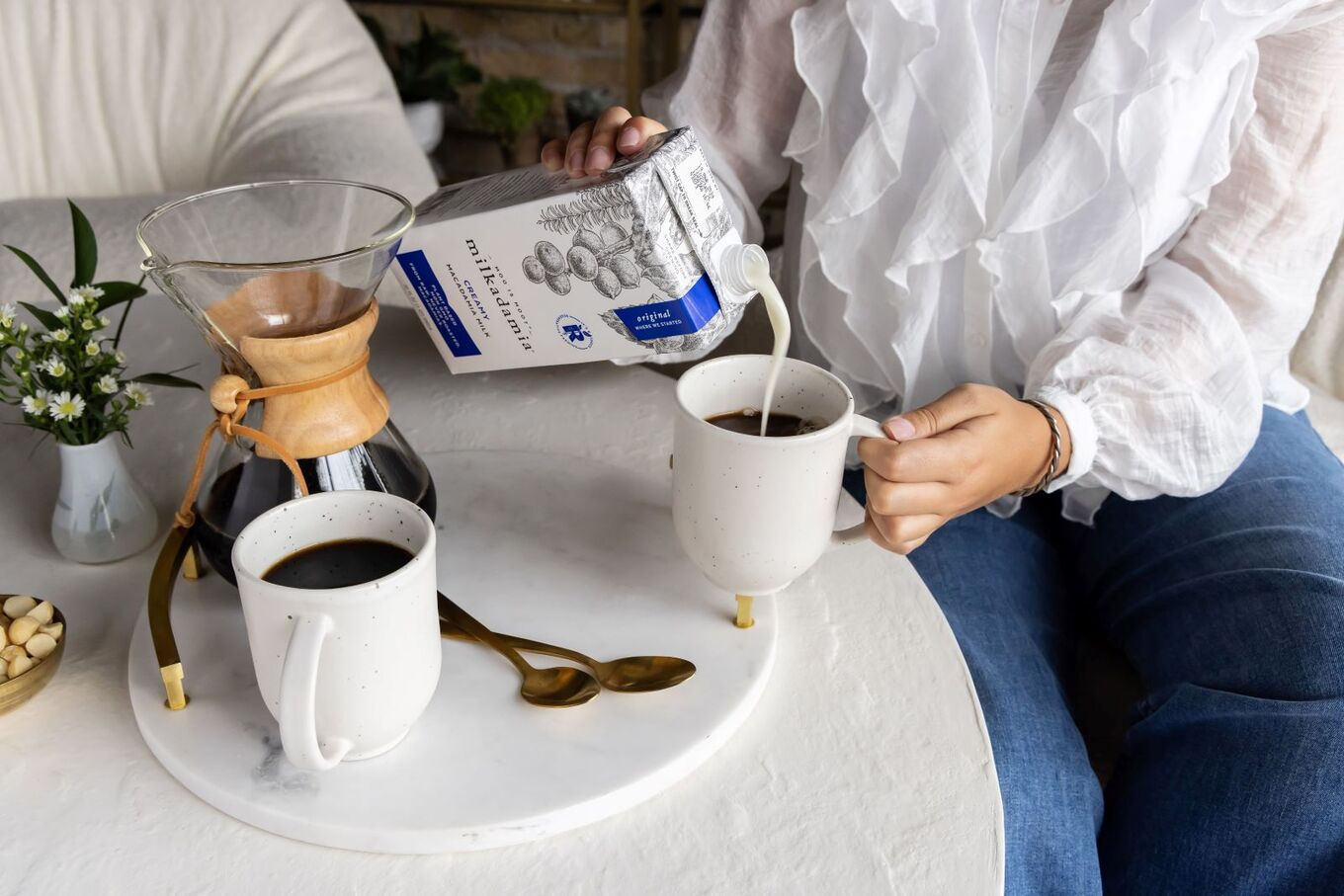 Milkadamia
Milkadamia
Consumers want the option to enjoy non-dairy milk not only in their homes but when they order their daily latte or cappuccino. The category has exploded with options and new brands throughout the past decade, not only growing in size but also improving on the product. Now, vegan milks are just as creamy, versatile, and nutritious as cow’s milk. And that’s not only good for our tastebuds, but it’s good for the planet too. Dairy cows are a big part of animal agriculture, which contributes significantly to a multitude of environmental problems, including deforestation, water pollution, and greenhouse gas emissions.
Plant-based milk is now so popular, research suggests that one-third of Americans drink it weekly. But what are they opting for? Here are some of the dairy-free alternatives to ask for in your next coffee shop latte.
7 non-dairy milk options at coffee shops
1 Soy milk
While once the only option, soy is being phased out of many coffee shops to make way for the newer milks. Soy has also lost favor with many consumers due to some lingering backlash of misinformation surrounding this innocent vegan beverage (more on the latter here—and no, soy doesn’t give men “man boobs”).
We’re personally frustrated by the pullback on soy as a non-dairy option because the original has its merits when it comes to coffee and espresso beverages. Soy milk not only offers a parallel nutrition label to cow’s milk (hello, eight grams of complete protein!), but it also foams extremely well. In the hands of a decent barista and functional espresso machine, soy milk can transform into tiny, velvety bubbles of microfoam that make for “that first sip feeling,” as Starbucks puts it. The coffee behemoth introduced soy milk to its menus beginning in 1997, and while it still charges extra for this non-dairy beverage, we’re relieved the company has kept soy as an option.
In regards to taste, barista-grade soy milk (such as the Pacific Barista Series Soy or Starbucks’ sweetened variety) is neutral and happy to take a back seat to highlight the flavor of the espresso. Soy milk is also sturdy enough to stand up to heat. While other milks may curdle or literally taste burnt, soy remains constant. Let’s give soy another chance and bring it back to coffee shops.
2 Almond milk
Almond milk was one of the first non-dairy milks to dethrone soy. Gaining popularity in the mid-2010s—likely a result of the mounting success of Califia Farms’ almond milk in retailers—almond milk either joined soy or outright ousted it from coffee shops.
Califia Farms claimed that its Barista Blend Almondmilk—designed specifically for baristas—was the top choice of plant milk in over 600 leading coffee shops by 2016. The brand pulled quotes from coffee customers and career baristas—the kind that win latte art competitions—to rave about almond milk’s superior foamability and versatility.
The marketing stunt worked, and almond milk is still going strong as a non-dairy milk option on countless coffee shop menus. We’ve found that almond milk, even a barista blend, does not foam quite as well as soy. It takes an experienced barista and a very expensive espresso machine to obtain suitable results in regard to microfoam. Drinks without much foam—such as a flat white, macchiato, or cortado—work better with almond milk than a latte or cappuccino. Iced beverages also work well with almond milk, as there’s no foam at all.
As for the taste, we’ve found that almond milk can taste a bit scorched if the barista doesn’t keep the steaming temperature in check. An espresso beverage should be ready to drink as soon as your name is called—if you want to get really technical, the milk should never be steamed above 145 degrees. Unfortunately, not all cafés are this specific, so the likelihood of your almond milk flat white tasting burnt is reasonably probable. To compensate for this, choose a flavored beverage to pair with almond milk. An almond milk matcha latte will easily mask any odd tastes caused by barista error.
3 Oat milk
While almond milk hasn’t gone away, oat milk has certainly done its best to dethrone its predecessor. This non-dairy option was largely unheard of in the US until Oatly arrived in 2018. The Swedish brand slowly introduced its revolutionary product by placing it in the very capable hands of New York City’s most elite and consistent baristas in 2017. Coffee shop regulars were hooked, and by 2018, they could find Oatly in US grocery stores. The brand continued its expansion into coffee shops, eventually landing in major chains like Starbucks and Peet’s Coffee in 2020. The Starbucks debut was so celebrated, the chain experienced oat milk shortages for months following the relentless and immediate demand from customers.
Oatly is still a major player in the coffee scene, but it’s not the only one. An Australian brand called Minor Figures discreetly started making inroads in independent and third-wave cafés. Long-standing plant milk brands such as Pacific and Califia Farms have also formulated oat products to keep in stride with the oat milk craze.
People love oat milk for many of the same reasons soy works so well in espresso beverages. It’s thick and creamy, foams easily, and doesn’t carry an unpleasant aftertaste. Note: oat milk is lower in protein than soy milk but provides about double the calories for the same eight-ounce serving.
4 Coconut milk
Coconut milk has never been as popular as soy, oat, or almond milk, but it refuses to go extinct. Starbucks still carries this old-school option, as do a smattering of independent shops.
In terms of foam, coconut milk isn’t the easiest to work with. This milk is on the thin side, making microfoam essentially a futile effort. As one would expect, coconut milk also carries a slight coconut flavor not entirely masked by espresso. It works in fruity applications such as Starbucks’ refreshers and Pink/Purple/Green drinks, and it’s also a passable option for iced beverages that don’t involve foam. Coffee lovers, beware: you run the risk of curdling your coffee if you use coconut milk as a creamer.
5 Macadamia milk
Like oat milk, there’s really only one prominent player in the macadamia milk category. Aptly named Milkadamia, this vegan dairy company is laser-focused on macadamias. The Latte Da product was created for espresso and foaming applications, and while not as common as oat or almond, macadamia milk is starting to outpace soy in regards to availability.
Macadamia milk’s foaming capabilities match those of almond milk—they’re not great, but a good barista and a $5,000 machine can coax up a passable enough microfoam. The option also harbors a very distinct taste. It’s not quite macadamia, but it’s slightly sweet and very present when simply paired with espresso. Again, this flavor can be masked by ordering a flavored beverage such as a sweet macadamia milk mocha.
6 Pistachio milk
Brand new to the coffee shop scene, pistachio milk may just be the next non-dairy trend. Food industry leaders were introduced to the novel product at the 2022 Natural Products Expo West trade show, and the overall consensus was swoon-worthy. Elmhurst 1925 set up a retro coffee bar fitted with an expert barista who whipped up pistachio milk cortados and petit lattes on demand. The microfoam was on point and the taste was unique yet comforting and entirely pleasant.
7 Hybrid milks
Not aligned to any one milk, these non-dairy milks were made exclusively for coffee shops. They claim to be a mix of plants that deliver on extra velvety espresso beverages that froth, feel, and taste just like full-fat dairy milk. These newer options are largely made of coconut cream, oil, water, and some sort of isolated protein such as pea or sunflower. The high-fat content allows them to create quality foam, but it’s at the expense of consuming processed ingredients. Myracle Mylk is one such hybrid milk brand making its way into coffee shops. The taste varies between brands, but flavored beverages are best to mask any aftertaste. Because of their superior frothing capabilities, opt for a hot drink with a hybrid milk—it’s what they do best.
For more vegan coffee guides, read:
JUMP TO ... Latest News | Recipes | Guides | Health | Subscribe
Here at VegNews, we live and breathe the plant-based lifestyle, and only recommend products we feel make our lives amazing. Occasionally, articles may include shopping links where we might earn a small commission, but in no way does this effect the editorial integrity of VegNews.


